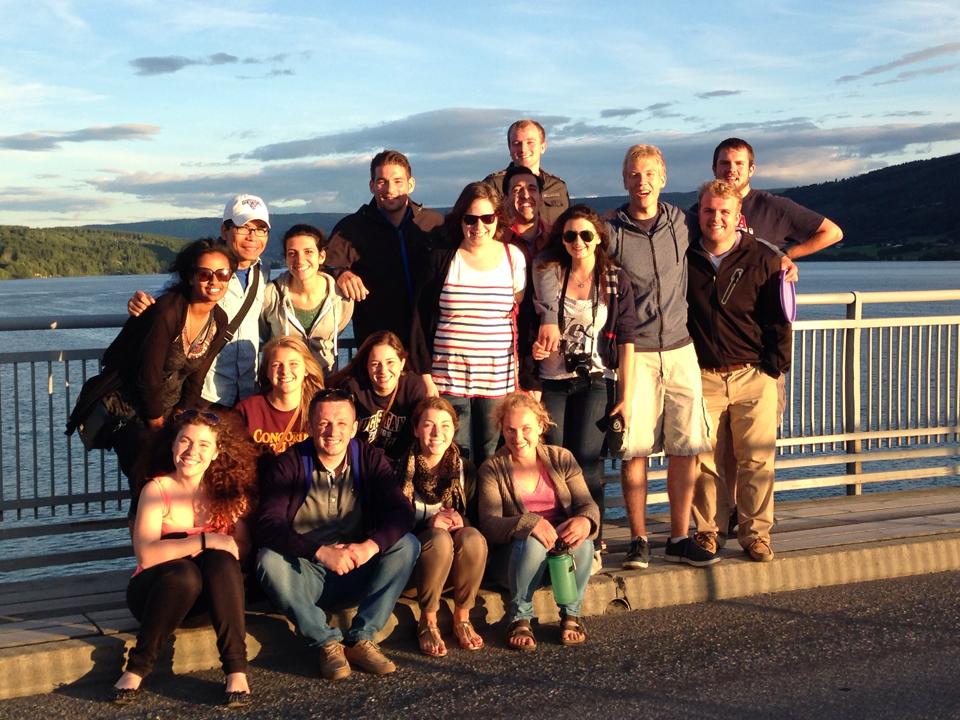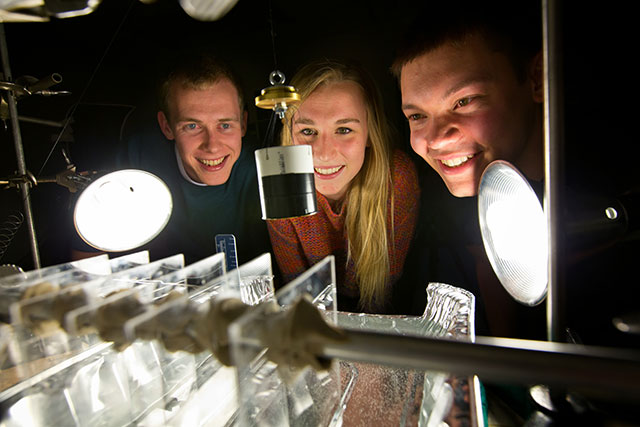Page 459 • (5,993 results in 0.047 seconds)
-

commonly used in the news, on social media and on college campuses. Previous topics include “Climate,” “Gender,” “Violence” and “Advocacy.” Episodes of OTI are released once per month. If you have feedback, comments or ideas for episodes, please email producer Zach Powers at powerszs@plu.edu. Previous Episodes Read Previous PLU alumnus Scott Foss ’91 serves as a top paleontologist for the Department of the Interior Read Next Symposium uplifts collaborative student-faculty research COMMENTS*Note: All
-
understanding of the PLU campus community, so too is it intended to reach out to the broader Puget Sound Community. Come join us as we consider questions and confront the challenges Our Thirsty Planet faces, challenges with respect to the environment, human health, social justice, economic health, and political conflict. Previous symposiums have been on China: Bridges for a New Century, Norway’s Pathways to Peace, Advances in Global Health by Non-Governmental Organizations, and Understanding the World
-
PNWU Doctor of Osteopathic Medicine (DO)The PNWU College of Osteopathic Medicine was founded in 2008 in Yakima, Central Washington. Approximately 60% of practicing osteopathic physicians (DOs) specialize in primary care, focusing on family medicine, internal medicine, pediatrics, obstetrics/gynecology, and geriatrics. DOs are trained with a holistic approach to patient care, recognizing physical, psychological, and social needs. They emphasize the interplay between bodily structure and function
-
, Cellular and Organismal Properties of Living Systems; Physical, Chemical and Biochemical Properties of Living Systems; Social and Behavioral Sciences Principles; and Critical Analysis and Reasoning Skills. The first 3 sections are organized around foundational concepts or “big ideas” in the sciences. They reflect current research about the most effective ways for students to learn and use science, emphasizing deep knowledge of the most important scientific concepts over knowledge simply of many
-
, Cellular and Organismal Properties of Living Systems; Physical, Chemical and Biochemical Properties of Living Systems; Social and Behavioral Sciences Principles; and Critical Analysis and Reasoning Skills. The first 3 sections are organized around foundational concepts or “big ideas” in the sciences. They reflect current research about the most effective ways for students to learn and use science, emphasizing deep knowledge of the most important scientific concepts over knowledge simply of many
-

forum, both Delo and Larsen are spending seven weeks in Olso. ” Andrew’s posts the Nobel Prize Peace Forum blog | Social Media – a Tool for Democracy or for Clutter? and “Our Doubts are Traitors…” Seniors Andrew Larsen and Amy Delo are in the Peace Scholars program at the Olso International Summer School. Photo: John Froschauer/PLU Amy’s latest posts | The World Walks Past a Cafe in Grønland and Building Bridges: Learning Outside of the Classroom Feature photo credit: Amy Delo *Note: All comments
-
involves educating students, faculty and staff about social justice, sustainability and community, McGinnis said. The university works to create a positive dining experience to ensure students are nourished and ready to learn those lessons. And that positive experience goes beyond the plate. It takes into account conversation, tablescapes and the company. PLU brings people together in the University Center Commons, where students dine together and with professors and staff members. Dining staff come
-

one wild and precious life? What’s your vocation?” Laree Winer '15, Associate Director for Student Engagement and the Center for Vocation PLU’s mission found Winer in the right place at the right time. She snagged an informational interview with human resources, thanks to a client’s connection to the Office of Advancement. “I just started applying for anything I could to get my foot in the door here at PLU,” she said. An administrative job with the Division of Social Sciences in 2006 led to
-

September 27, 2013 Mark Lee, Mimi Granlund and Matt Hubbard and the apparatus they built to help them understand how the roughness and size of a tongue would affect the amount of water an animal could lap up and still be efficient. (Photos by John Froschauer) What exactly is a ‘CAPSTONE’ (And how will it ge me a job?) By Barbara Clements, Content Development Director So just how does one get a job – or an offer to grad school – by studying slobber? First step: Start studying slobber – or
-
Office, and Career Development Office Ramstad 112 Department Administrative Assistant/Advisor Student Account RecordsStudent Financial Services Hauge Administration 102 Records Coordinator Procedure to Inspect Education RecordsStudents may inspect and review their education records upon request to the appropriate record custodian. Students should complete the Request to Review Records form, available in the Registrar’s Office, identifying as precisely as possible the records they wish to inspect
Do you have any feedback for us? If so, feel free to use our Feedback Form.


